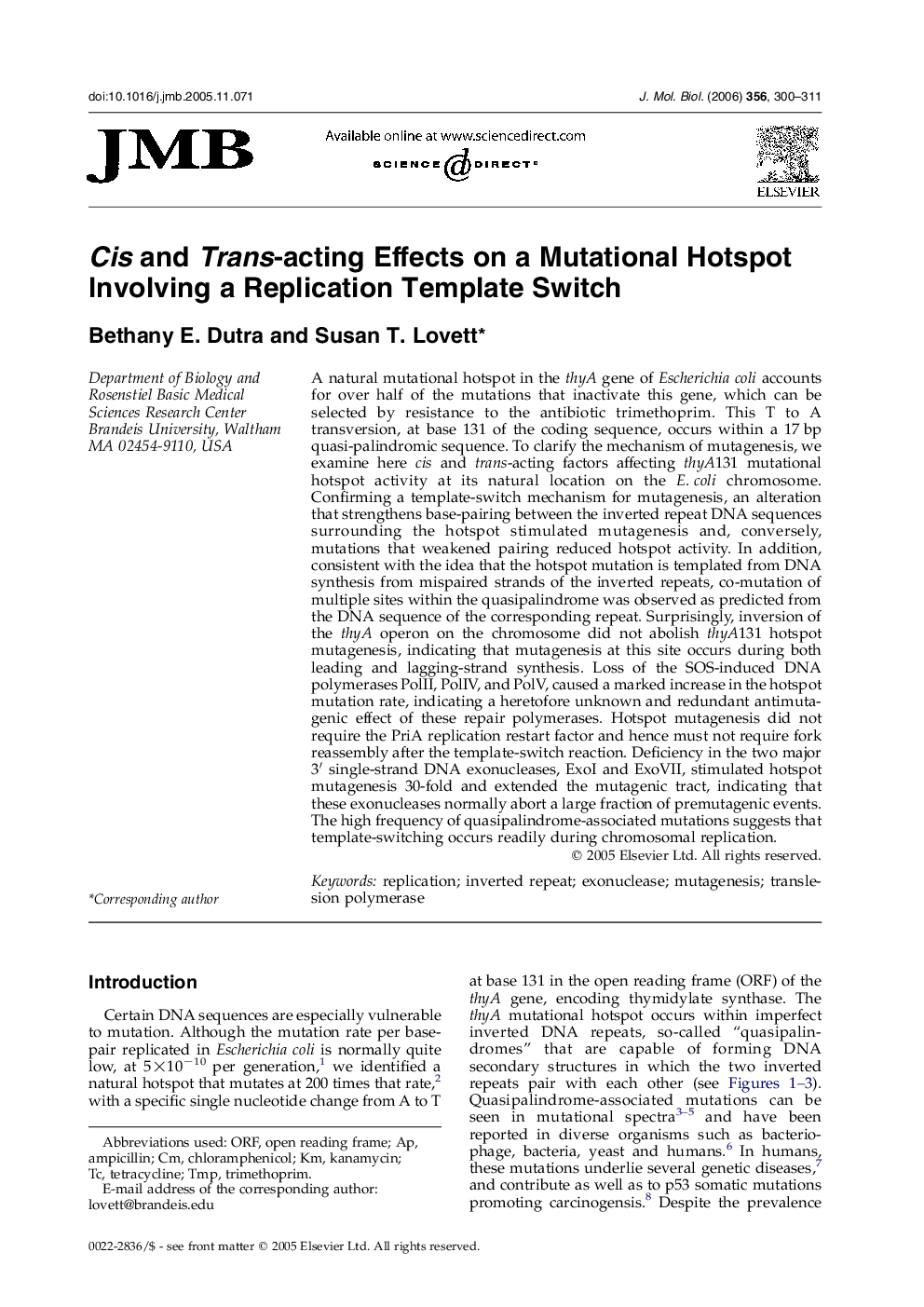| کد مقاله | کد نشریه | سال انتشار | مقاله انگلیسی | نسخه تمام متن |
|---|---|---|---|---|
| 2190148 | 1096239 | 2006 | 12 صفحه PDF | دانلود رایگان |

A natural mutational hotspot in the thyA gene of Escherichia coli accounts for over half of the mutations that inactivate this gene, which can be selected by resistance to the antibiotic trimethoprim. This T to A transversion, at base 131 of the coding sequence, occurs within a 17 bp quasi-palindromic sequence. To clarify the mechanism of mutagenesis, we examine here cis and trans-acting factors affecting thyA131 mutational hotspot activity at its natural location on the E. coli chromosome. Confirming a template-switch mechanism for mutagenesis, an alteration that strengthens base-pairing between the inverted repeat DNA sequences surrounding the hotspot stimulated mutagenesis and, conversely, mutations that weakened pairing reduced hotspot activity. In addition, consistent with the idea that the hotspot mutation is templated from DNA synthesis from mispaired strands of the inverted repeats, co-mutation of multiple sites within the quasipalindrome was observed as predicted from the DNA sequence of the corresponding repeat. Surprisingly, inversion of the thyA operon on the chromosome did not abolish thyA131 hotspot mutagenesis, indicating that mutagenesis at this site occurs during both leading and lagging-strand synthesis. Loss of the SOS-induced DNA polymerases PolII, PolIV, and PolV, caused a marked increase in the hotspot mutation rate, indicating a heretofore unknown and redundant antimutagenic effect of these repair polymerases. Hotspot mutagenesis did not require the PriA replication restart factor and hence must not require fork reassembly after the template-switch reaction. Deficiency in the two major 3′ single-strand DNA exonucleases, ExoI and ExoVII, stimulated hotspot mutagenesis 30-fold and extended the mutagenic tract, indicating that these exonucleases normally abort a large fraction of premutagenic events. The high frequency of quasipalindrome-associated mutations suggests that template-switching occurs readily during chromosomal replication.
Journal: Journal of Molecular Biology - Volume 356, Issue 2, 17 February 2006, Pages 300–311